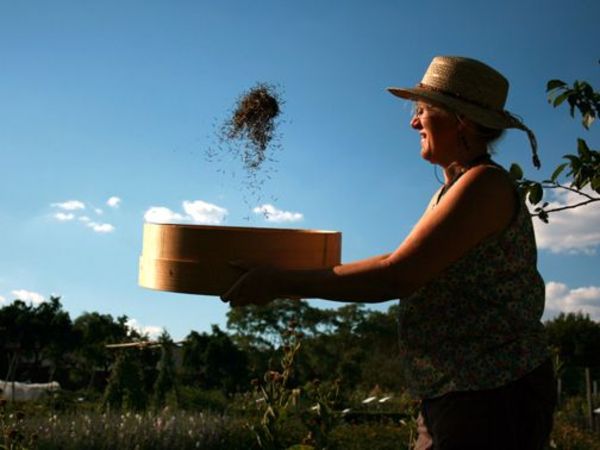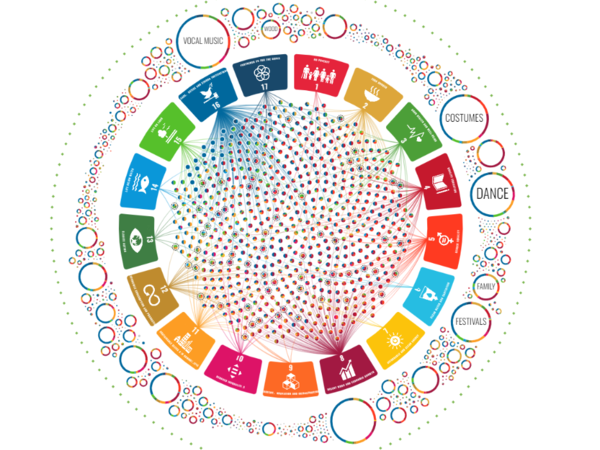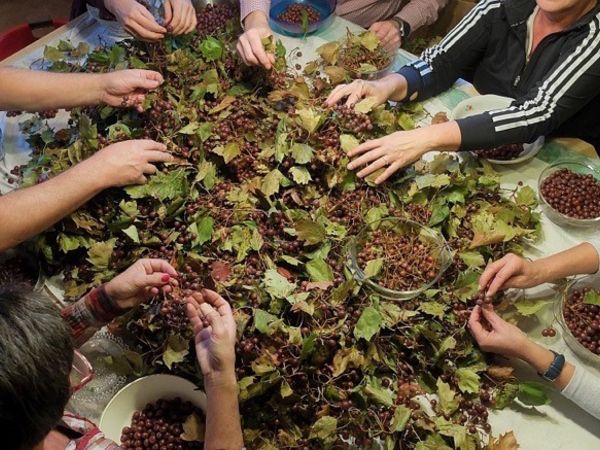Since the UNESCO Convention for the Safeguarding of the Intangible Cultural Heritage has entered into force, the Austrian Commission for UNESCO has accompanied the ratification process in Austria and has been entrusted with the implementation of the Convention at the national level since Austria's ratification in 2009. Its central tasks include the implementation of awareness-raising measures aimed at the safeguarding, transmission and promotion of the intangible cultural heritage in Austria and to draw-up an Inventory of the Intangible Cultural Heritage in Austria.
The Austrian Commission for UNESCO:
- has access to a network of expert institutions and experts;
- takes measures to promote the intangible cultural heritage in society;
- provides advice on good practices and recommends measures for the safeguarding of intangible cultural heritage;
- encourages studies and research projects on intangible cultural heritage;
- draws attention to the significance of institutions of further and higher education in the process of passing on intangible cultural heritage;
- encourages the identification and documentation of intangible cultural heritage.
The Austrian Commission for UNESCO consciously focuses on local knowledge that has been transmitted for generations, in addition to the well-established field of “Volkskultur” [folk culture] (regional songs, music, dance and storytelling, etc.). In the age of climate change and globalisation, such immersion can generate motivation for individuals to participate in sustainable development.
Since its ratification in 2009, the Austrian Commission for UNESCO has developed focal points for implementing certain areas of the Convetion together with the tradition-bearers and the Advisory Committee. Given that intangible cultural heritage is always borne by experience and knowledge, the areas ”knowledge in dealing with nature” and “traditional craftsmanship” are of particular importance. Raising awareness, safeguarding and passing on traditional knowledge form the main focus.
read moreThe 2030 Agenda for Sustainable Development is an action plan that addresses the three dimensions - economic, social and environmental - of sustainable development. Intangible cultural heritage can be an effective contributor to sustainable development in each of its three dimensions, as well as helping to ensure peace and security as basic prerequisites for sustainable development.
read moreAwareness raising and capacity building are two essential areas of intangible cultural heritage and should encourage tradition bearers in their preservation measures. The Austrian Commission for UNESCO therefore strives to support projects through various partnerships and cooperations and to take measures itself that not only make the importance of the intangible cultural heritage visible, but also take up the (current) debates and discourses around the ICH. In recent years, this has resulted in a number of workshops, conferences, exhibitions, etc. The following examples are an excerpt of these activities.
read morePeriodic reporting allows States Parties to assess their implementation of the Convention, evaluate their measures for the safeguarding of intangible cultural heritage, report on their inventories of intangible cultural heritage, and update the status of elements inscribed on the Representative List.
read moreThe inclusion of a product from the food sector in the National Inventory of Intangible Cultural Heritage is not possible. Nevertheless, elements of the national inventory related to the field of "knowledge of nature and the universe" provide important impulses and examples that respectful treatment and observation of nature and its conditions, today as then, are relevant for sustainable development.
read more





![[Translate to EN:] © J. Ségur/ZED, with the permission of UNESCO](/fileadmin/_processed_/d/b/csm_Convention-2003-IKE_0832a6a47d.jpg)
![[Translate to EN:] © ÖUK](/fileadmin/_processed_/3/9/csm_P1011318_7eac86402f.jpg)

![[Translate to EN:] © Weitblickfilm](/fileadmin/_processed_/9/8/csm_Workshop_17_2dee1e1fd8.jpg)